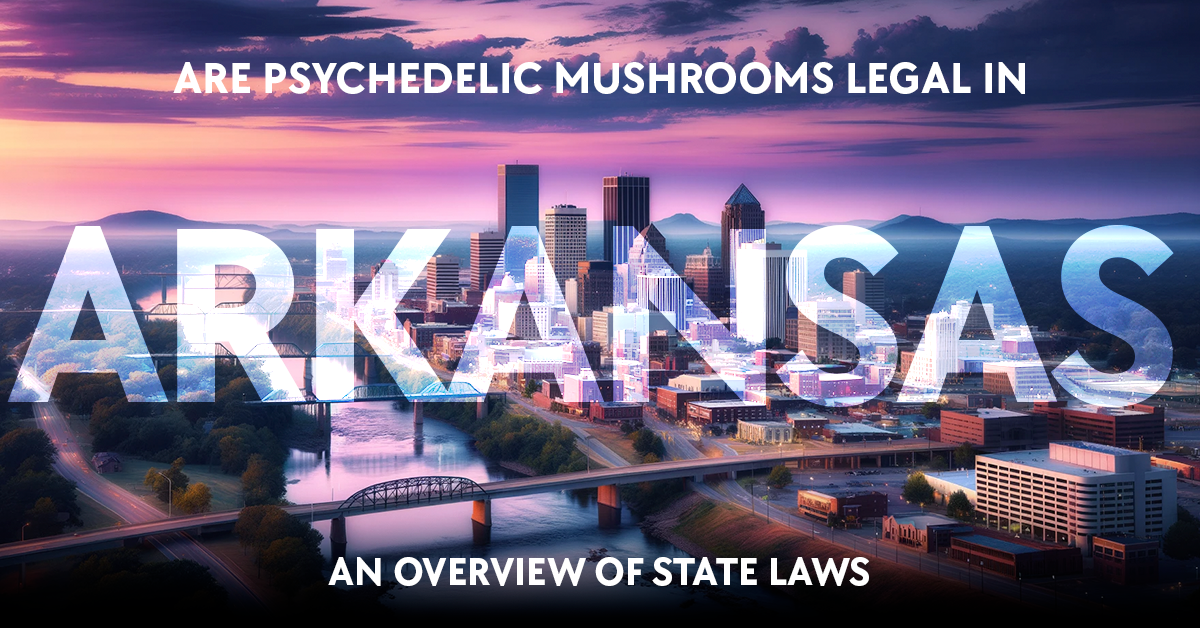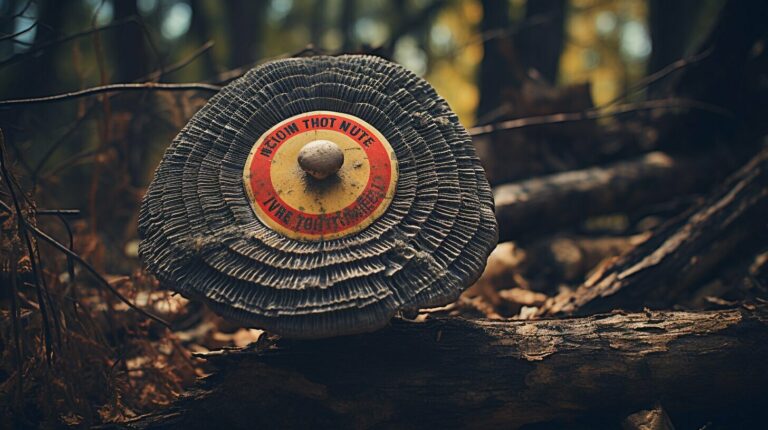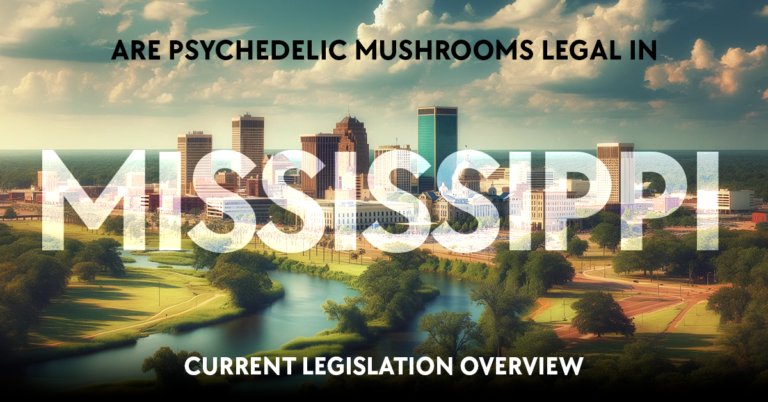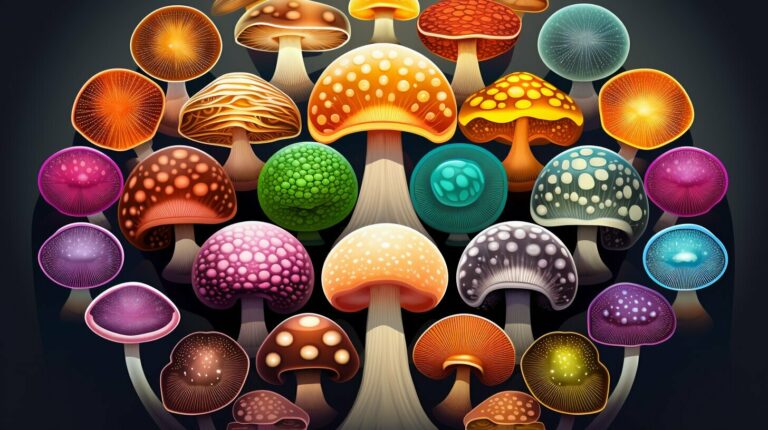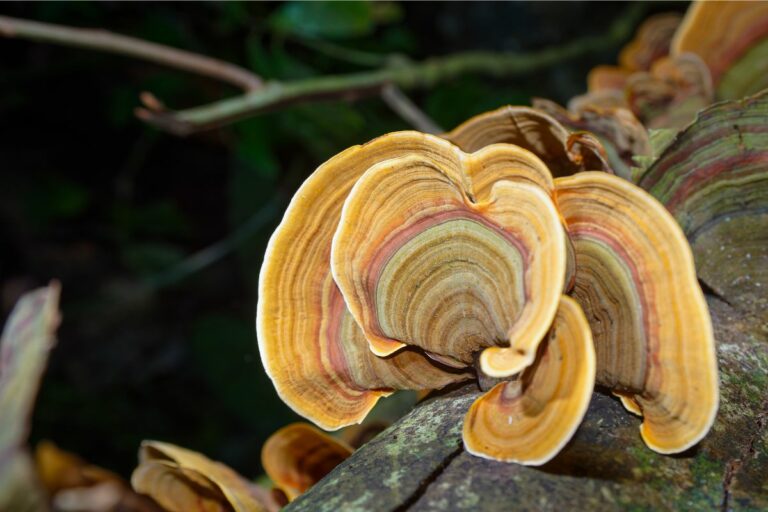When discussing the legal status of psychedelic mushrooms, also known as “magic mushrooms,” it’s essential to understand the nuances of the law that vary by region. In Arkansas, like in many parts of the United States, psilocybin—the psychoactive substance found in these mushrooms—is classified as a Schedule I controlled substance. This classification implies that the use, possession, sale, or cultivation of psychedelic mushrooms is illegal and considered to be without accepted medical use with a high potential for abuse.

The conversation around psychedelics, however, is evolving as research into their therapeutic potential gains traction. While the legal landscape remains rigid in Arkansas, there are places in the United States where the decriminalization movement has changed the status quo. This does not change the fact that at the federal level and in Arkansas, these substances are still controlled and any interaction with them outside sanctioned medical studies or decriminalized jurisdictions could lead to legal repercussions.
Acquiring knowledge on the legality of psychedelic mushrooms can be a complex process given the shifting perspectives on drug policy and the specific regulations of your locale. If you’re curious about the legal status of these substances in Arkansas, it’s critical to consult the most recent legislation and judicial interpretations, as the legal system’s stance on psychedelics continues to evolve.
Legality of Psychedelic Mushrooms in Arkansas
Table of Contents
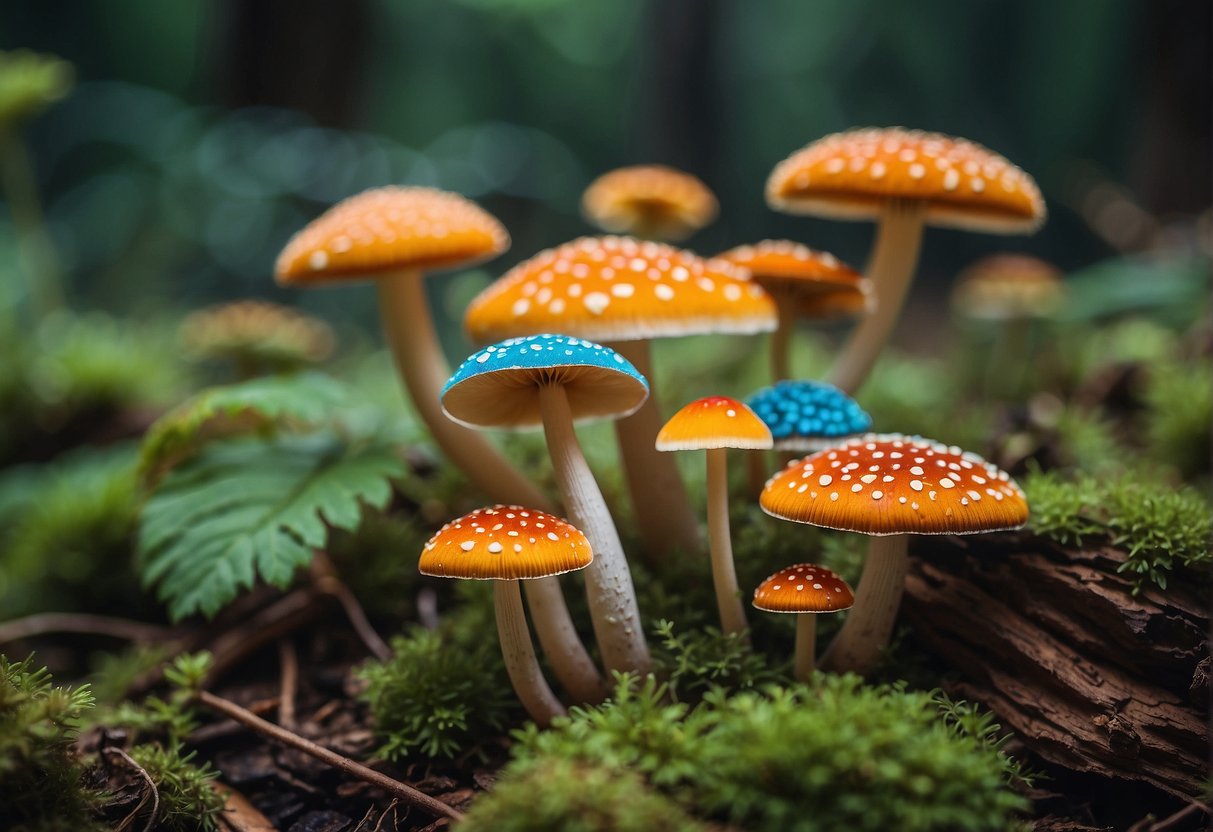
In Arkansas, the legal status surrounding psychedelic mushrooms, which contain psychoactive compounds like psilocybin and psilocin, is unambiguous. They are classified under Schedule I of the Controlled Substances Act due to their high potential for abuse and lack of recognized medical use.
State Legislation and Controlled Substances Act
Arkansas law strictly prohibits the possession, sale, and cultivation of psilocybin mushrooms, as they are listed under the Schedule I substances. This classification implies that psychedelic mushrooms, commonly referred to as shrooms, are considered to have no accepted medical use and possess a high potential for abuse. The classification of psilocybin and psilocin under Controlled Substances aligns with the federal stance held by the United States.
Criminal Penalties for Possession
The consequences of having psychedelic mushrooms in your possession in Arkansas are severe:
- Simple Possession: A misdemeanor or felony charge depending on the quantity. Possession of fewer than 4 ounces may result in up to one year in jail and fines up to $2,500. More than 4 ounces can lead to felony charges, with penalties ranging from 3 to 10 years and fines up to $10,000.
- Manufacture/Cultivation: Considered a felony with potential imprisonment from 5 to 20 years and fines of up to $15,000.
It’s critical to be aware that just the presence of fresh or dried psychedelic mushrooms, or any material that contains psilocybin or psilocin, can be grounds for criminal charges in Arkansas. Despite shifting perspectives on psychedelic substances in some parts of the United States, there is no legal distinction in Arkansas that permits the use or possession of illegal psilocybin mushrooms.
Psychedelic Mushrooms and Federal Law

When you’re looking into the legal status of psychedelic mushrooms, it’s crucial to understand how they are classified under federal law. The Controlled Substances Act and the DEA play pivotal roles in this classification.
DEA Classification and Schedule I Drugs
Psychedelic mushrooms, primarily containing the active compound psilocybin, fall under the Schedule I Controlled Substance category at the federal level. The DEA (Drug Enforcement Administration) classifies substances under the Controlled Substances Act. Schedule I drugs are defined as substances with a high potential for abuse, no currently accepted medical use in treatment in the United States, and a lack of accepted safety for use under medical supervision.
Federal vs. State Jurisdiction
Despite any changes at the state level regarding the legalization or decriminalization of psychedelic substances, such as psilocybin mushrooms, they remain illegal under federal law. This means that while some states may have different laws concerning these substances, their production, sale, and possession are still subject to prohibition by federal law enforcement agencies, and you could face federal charges if caught with them.
Medical and Therapeutic Use
https://www.youtube.com/watch?v=J_icedDpCO8&embed=true
The exploration of psychedelic mushrooms, particularly psilocybin, for medical and therapeutic benefits is a growing interest in the scientific community. The research investigates their potential to treat a range of mental health conditions such as depression, anxiety, and PTSD.
Evidence of Benefits for Mental Health
Emerging evidence suggests that psilocybin, the active ingredient in psychedelic mushrooms, may offer substantial benefits for mental health. Studies have shown that with professional oversight, psilocybin can foster significant and lasting improvements in depression and anxiety symptoms for some individuals. The therapeutic impact appears to relate to psilocybin’s capacity to facilitate deep, introspective experiences that can lead to emotional breakthroughs and cognitive insights in the context of psychotherapy.
Current Research on Psychedelics in Medicine
Current research efforts are substantiating the therapeutic benefits of psychedelics with rigorous clinical trials. These studies aim to understand the mechanisms behind psychedelic-assisted psychotherapy and establish standardized dosing and treatment protocols. Researchers are particularly focused on psilocybin’s potential to treat PTSD and other stress-related disorders, extensively examining its safety profile and efficacy compared to traditional pharmacotherapy.
Arkansas’s Stance on Medicinal Psychedelics
In Arkansas, the use of psychedelic mushrooms for any purpose, including medicinal use, remains illegal. There are no current initiatives or laws that permit access to psilocybin for therapeutic applications, despite the increasing research and legislative changes occurring in other parts of the United States. As such, those in Arkansas will have to await changes in the legal landscape to explore these potential treatment options legally within the state.
Comparative Legality in Other States
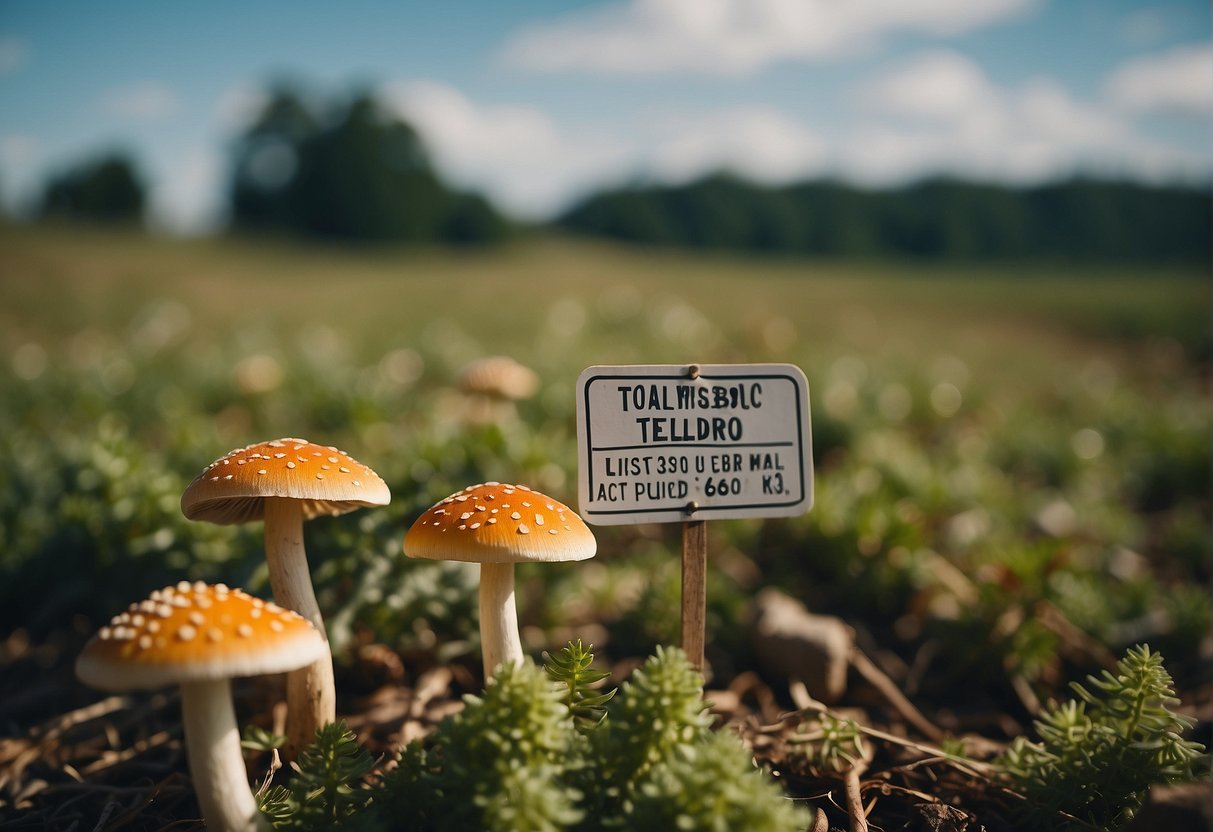
You’ll find that across the United States, the legal status of psychedelic mushrooms varies widely. Some states have made strides towards decriminalization and legalization, while others maintain strict prohibitions.
Trends in Decriminalization and Legalization
In recent years, you’ve observed a trend towards the decriminalization and, in some cases, legalization of psychedelic mushrooms. Notably, Oregon became a trailblazer when voters approved a ballot measure to allow the regulated medical use of psilocybin. In addition, cities like Denver, Colorado; Oakland and Santa Cruz, California have passed resolutions that effectively decriminalize possession of small amounts of psychedelic mushrooms.
Overview of Psychedelic Laws by State
Here is a brief overview of where select states stand regarding psychedelic mushrooms:
- Oregon: Legal for regulated medical use.
- California:
- State: Illegal.
- Santa Cruz: Decriminalized.
- Oakland: Decriminalized.
- Colorado:
- State: Illegal.
- Denver: Decriminalized.
- Connecticut: Currently illegal without any decriminalization initiatives.
- Massachusetts: Illegal at the state level, but some local jurisdictions are considering decriminalization policies.
When examining these laws, it’s clear that while there is forward movement in some areas, the legal landscape remains complex and fragmented. You should always check the latest local laws as they can change rapidly.
Practical Considerations and Public Safety
In Arkansas, the legal status of psychedelic mushrooms directly impacts public safety and the practical considerations for their use. Your understanding of the risks and perceptions surrounding these substances is crucial.
Prevalence of Use and Public Perception
Psilocybe cubensis and Psilocybe mexicana are two types of psychedelic mushrooms containing the psychoactive compound psilocybin. Despite their classification as Schedule I substances, which makes their use illegal, the public perception is shifting, with some people viewing them as tools for psychological wellness. If you’re in Arkansas, you should know that use of these mushrooms remains against the law, and cultivation or distribution can lead to severe legal penalties.
Risks Associated with Unregulated Use
Unregulated use of psychedelic mushrooms can lead to unpredictable health risks including, but not limited to, addiction and adverse psychological reactions. Unlike regulated substances like THC, the concentration of psilocybin in mushrooms can vary greatly, making it difficult to dose accurately and increasing the risk of an unpredictable experience. In your case, sourcing these mushrooms from illicit markets may expose you to other hazardous substances, such as LSD, cocaine, or ketamine, which can be misrepresented as psilocybin.
Psychedelic Mushrooms Vs. Other Substances
Psychedelic mushrooms, when compared to other psychoactive substances, have a different risk profile. For instance, they have a low potential for addiction compared to substances like cocaine. However, the psychological effects can be profound, necessitating careful consideration of their impact on your mental health and public safety. Remember, as with any psychoactive compound, the impact on your well-being and the well-being of others should be the priority.
Cultivation and Spores
In Arkansas, the cultivation of psychedelic mushrooms and possession of psilocybin spores falls into complicated legal territories. You should be aware of the risks and the law’s perspective on these substances.
Legal Implications of Mushroom Cultivation
Cultivating psychedelic mushrooms that contain psilocybin is illegal in Arkansas, as it is under federal law due to the psychoactive properties of psilocybin. If you engage in the cultivation of these mushrooms, you are at risk of violating state and federal drug manufacture laws, which can lead to severe penalties. Psilocybin is classified as a Schedule I substance, indicating a high potential for abuse and no recognized medicinal value, making cultivation a criminal activity.
Psilocybin Spores: A Legal Grey Area
Buying, selling, or possessing psilocybin spores for microscopy purposes and research falls under a legal grey area. The spores themselves do not contain psilocybin, hence they are not regulated under the Controlled Substances Act. However, be mindful that the intention to germinate these spores into fruiting mushrooms can be deemed as intent to produce an illegal substance. Some websites offer psilocybin spores, but the legality of these transactions is ambiguous and the consequences can be significant if authorities infer an intent to cultivate.
Potential for Reform and Future Outlook
Your understanding of the legal status of psychedelic mushrooms in Arkansas is on the verge of becoming more nuanced as you consider the potential for reform and future outlook of these substances.
Drug Policy Reform Movements
You’re witnessing an era in which drug policy reform movements are gaining momentum across the United States. Advocacy groups are pushing for changes to existing laws that classify psychedelic mushrooms as illegal substances. Their arguments often cite emerging research suggesting potential therapeutic benefits of psilocybin, the active compound in psychedelic mushrooms. In Arkansas, these reform movements confront a complex legal landscape but reflect a growing national conversation on drug policy reform.
Potential Changes to Arkansas’s Psychedelic Laws
Arkansas currently classifies psychedelic mushrooms as a Schedule I substance; possession and use are prohibited under state law. Yet, potential changes to Arkansas’s psychedelic laws could be influenced by policy shifts happening in other states and at the federal level. While no specific legislative proposals are on the table right now in Arkansas, the actions of drug reform advocates could bring about future debates on the topic. Your comprehension of these laws may need to adapt as new proposals and research findings emerge and enter the public discourse, which could potentially transform today’s controversial stance into tomorrow’s reformed drug policies.
Frequently Asked Questions
When wondering about the legal landscape concerning psychedelic mushrooms in Arkansas, it’s important to have accurate information. Here are several key questions answered:
What is the legal status of psilocybin mushrooms in Arkansas?
Psilocybin mushrooms are classified as a Schedule I substance in Arkansas, making them illegal to possess, sell, or use.
Can one possess or cultivate psilocybin mushrooms for personal use in Arkansas without facing legal consequences?
No, you cannot possess or cultivate psilocybin mushrooms for personal use without facing legal consequences in Arkansas. Doing so is against state law.
Are there any medical exemptions for the use of psychedelic mushrooms in Arkansas?
Currently, there are no medical exemptions for the use of psychedelic mushrooms in Arkansas. They remain illegal for all purposes.
Has there been any recent legislation affecting the legality of psychedelic mushrooms in the state?
As of now, no recent legislation has been passed to change the legal status of psychedelic mushrooms in Arkansas.
Under what circumstances might someone face prosecution for involvement with psychedelic mushrooms in Arkansas?
You might face prosecution for involvement with psychedelic mushrooms in Arkansas if found possessing, distributing, or cultivating them, as they are a Schedule I controlled substance.
What are the penalties for the sale and distribution of psilocybin mushrooms in Arkansas?
The penalties for the sale and distribution of psilocybin mushrooms can be severe, including significant fines and incarceration, depending on the amount and intent proven.

